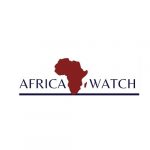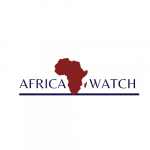A United Nations report has confirmed the killing of over 100 civilians, including children and aid workers, in Darfur last month, marking one of the deadliest episodes in Sudan’s ongoing civil war. The attacks, centered around the Zamzam and Abu Shouk displacement camps and the city of El Fasher, highlight the growing scale of atrocities as Sudan enters the third year of brutal conflict between the Sudanese Armed Forces (SAF) and the paramilitary Rapid Support Forces (RSF).
The April massacre, documented in a report by the UN Office of the High Commissioner for Human Rights, has drawn condemnation from international officials and renewed scrutiny of the African Union’s capacity to uphold the African Charter on Human and Peoples’ Rights.
“These are not random acts of violence—they are targeted, systematic assaults on civilian life,” said Mohamed Chande Othman, head of the UN Fact-Finding Mission for Sudan.
A Pattern of Escalating Violence
The attacks began in early April when RSF-aligned fighters assaulted Zamzam and Abu Shouk camps, killing dozens and displacing thousands. El Fasher, one of the few remaining SAF-held cities in Darfur, saw intense shelling, with reports of indiscriminate bombardment of civilian areas.
Children, humanitarian workers, and the elderly were among the victims. Access to aid was blocked, and critical infrastructure, including medical centers and water supplies, was destroyed. UN Secretary-General António Guterres called the situation “a humanitarian catastrophe,” while UNICEF Executive Director Catherine Russell warned of worsening famine, particularly for the 375,000 displaced children at risk.
Violations of International and Regional Law
The UN report outlines grave violations of international humanitarian law, including attacks on civilians, starvation tactics, sexual violence, and looting. The siege tactics and targeting of aid workers are described as deliberate strategies, not collateral damage.
Over 12.4 million people have been displaced since the conflict began. Medical centers have been destroyed or looted, and local populations face starvation due to supply blockades. The Fact-Finding Mission documented numerous cases of rape, forced disappearances, and public executions.
These acts also breach multiple provisions of the African Charter on Human and Peoples’ Rights, including:
-
Article 4 – Right to Life: The arbitrary killing of civilians in massacres.
-
Article 5 – Prohibition of Torture: Systematic sexual violence and degrading treatment.
-
Article 18(3) – Rights of the Child: The siege and starvation of displaced children.
-
Article 23 – Right to Humanitarian Assistance (implicitly): The deliberate targeting and obstruction of humanitarian relief.
-
Articles 2 and 9 – Prohibition of Discrimination and Hate Speech: Ethnically motivated violence and incitement.
Beyond Darfur: A National Collapse
The violence is not isolated to Darfur. Similar violations have been reported in Sinja, Wad Madani, and southern Khartoum, including ethnically motivated killings and mass disappearances. The scope and brutality point to a systemic breakdown of civilian protection, raising questions about regional accountability.
Demands for Action
The UN is calling on states to stop arms financing to Sudan and to uphold the Geneva Conventions. The Fact-Finding Mission has urged swift investigations and accountability measures. Still, African Union mechanisms remain inactive.
Observers are asking whether the AU Peace and Security Council will move beyond statements to impose sanctions or authorize intervention. With the conflict escalating and impunity deepening, the AU faces a credibility crisis.

